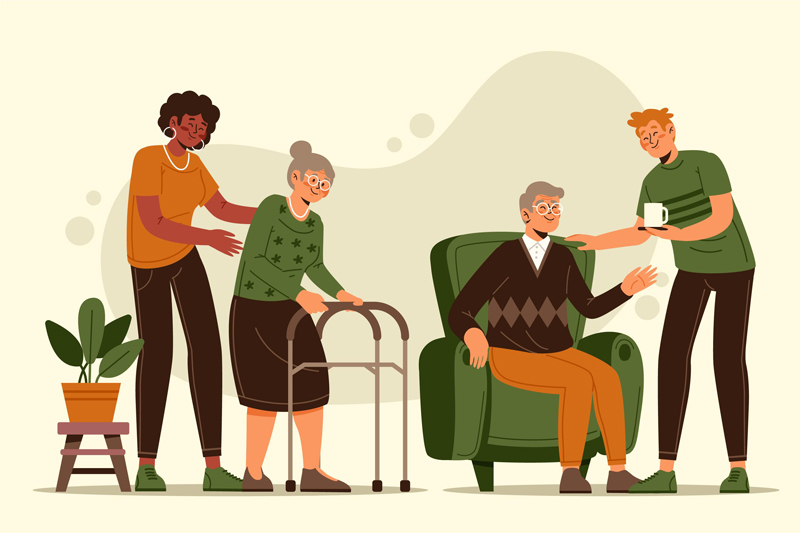Before retiring two years ago, I spent many hours counseling faculty who were facing their own impending retirements and the many issues that this brought up for them: What will I do every day? Will I lose daily contact with people? What happens when my partner or I begin to deteriorate medically, or cognitively? Will I be able to take care of them? Will they be able to take care of me? What are our options? While there is no way to address the hundreds of issues that come up during the September of our years, this article will highlight some of the most frequent questions that I have heard at the University and continue to hear in my private practice and will include a few resources for where to get help.
Depending on at what age we retire, some of us may need to assist our own parents with their life transitions, such as moving them from their homes into continuing care communities and finding them the help they need on a day-to-day basis, as well as providing much of it ourselves. Others will find themselves in a position to have to make these decisions for themselves.
The Multitude of Decisions
By far, what I hear the most involves the multitude of decisions around getting assistance when they need it and finding the appropriate resources for that help. The thought of having to give up independence and either have someone come into your home to provide aid, or to have to move out of your home into a continuing care facility is often put off until the last minute. In this case, loved ones are often faced with having to make those decisions for you. I always advise people to “be proactive, not reactive” so that this task does not become a burden for someone else. In my own life, my wife and I were fortunate that both sets of parents decided to move into an independent living residence before they really “needed” to, which enhanced their later years greatly. It was clear that their daily interactions with others, including meals, lectures, exercise classes and entertainment truly added joy to their later years. Not to mention the fact that it provides less worry for their grown children, knowing that they are being checked on every night and have immediate access to medical care.
There are a variety of resources ranging from in-home care to independent living, assisted living, memory care and nursing homes. It can be overwhelming and daunting to try and figure out where to start. I have found that A Place for Mom (aplaceformom.com) has a great website that will help you get started by asking about your needs – medical, financial, location and otherwise, and will direct you toward facilities that fit your requirements, with a variety of cost options.
- Helpful Resources
Another helpful resource is the Maryland Department of Aging (MDOA) which has a statewide network of 19 offices that assist older Marylanders with a range of services and sources of information. Every state has an office like this. They provide information on continuing care retirement communities, senior legal assistance, socialization resources, nutrition and meal services, counseling and support around Medicare health insurance options, as well as elder scam and fraud prevention. You can search the Maryland Department of Aging for a complete List of services and county office phone numbers. (aging.maryland.gov).
- Geriatric Counselors
It can also be advantageous to have a geriatric counselor or patient advocate assist you with the multitude of questions that come up. This can be particularly helpful when the person who clearly needs care has little or no interest in receiving it. There are lots of services on the web that offer these referrals, but it is often hard to ascertain the quality of these services. There are three I will mention that I have heard good things about. The first is a geriatric care counselor that the FSAP used for decades with great success. Her name is Margi Helsel-Arnold and she can be reached at 301-320-5380. A second resource is the Aging Network Services (agingnetworkservices.com), which provides consultations, assessments, and care management around issues such as coping with dementia, selecting housing, staying safe at home. and how to find long distance care. They also offer a free 30-minute introductory session. The third resource is the Aging Life Care Association (aginglifecareassociation.org) that helps with referrals to an aging life care expert.
The idea of having to give up one’s independence is extremely difficult for most of us and gaining some insight into the best ways to approach this can be very helpful and a great starting point in addressing these issues.

